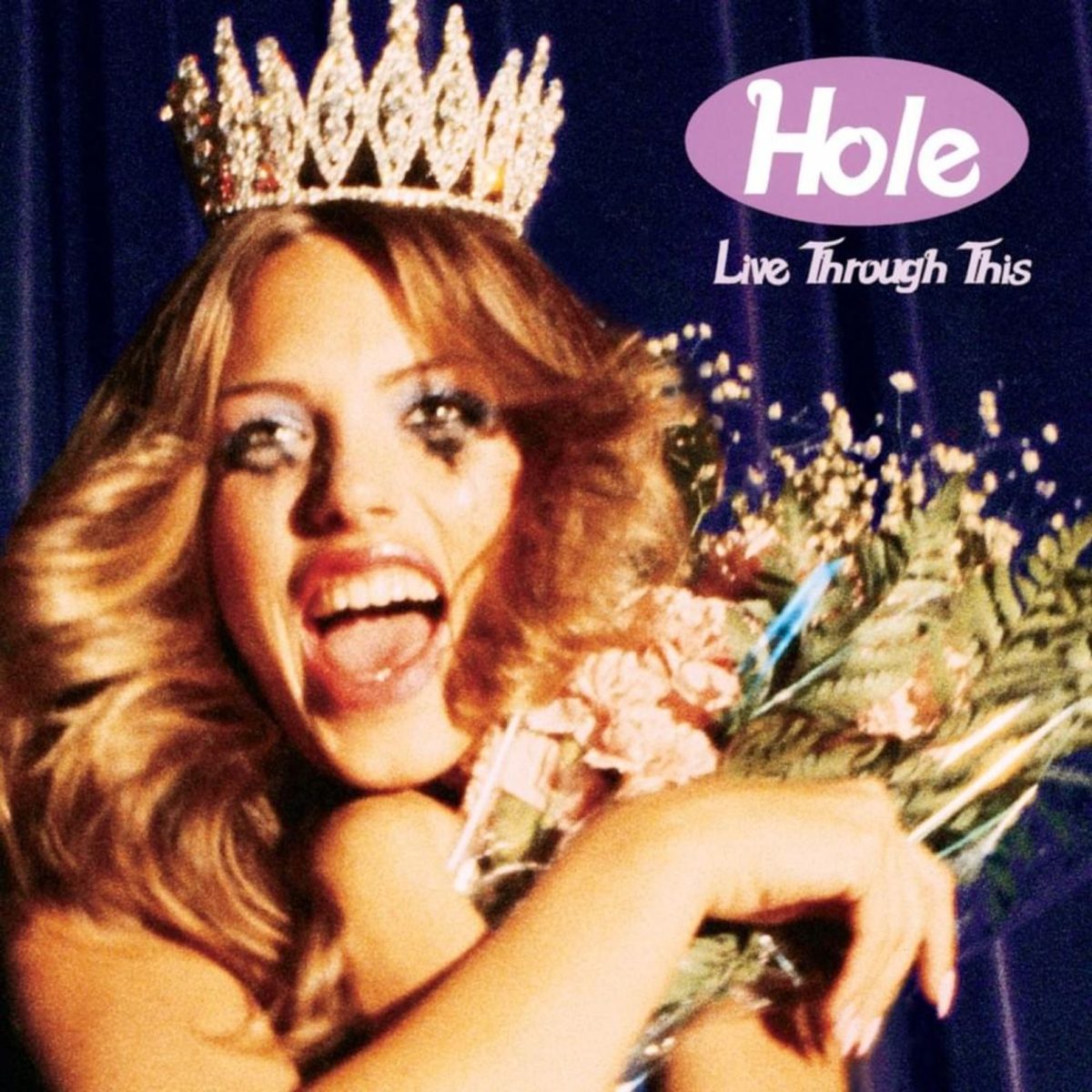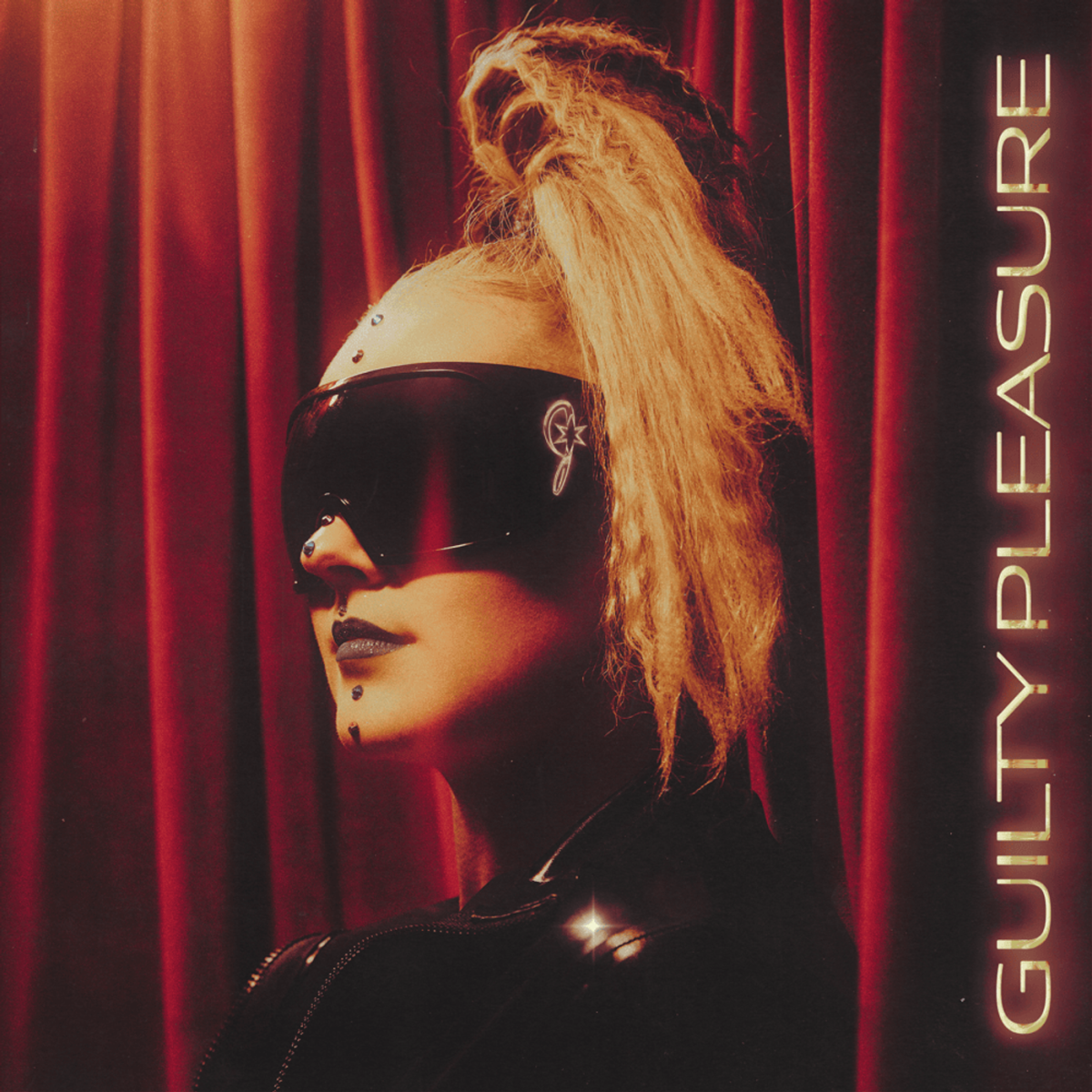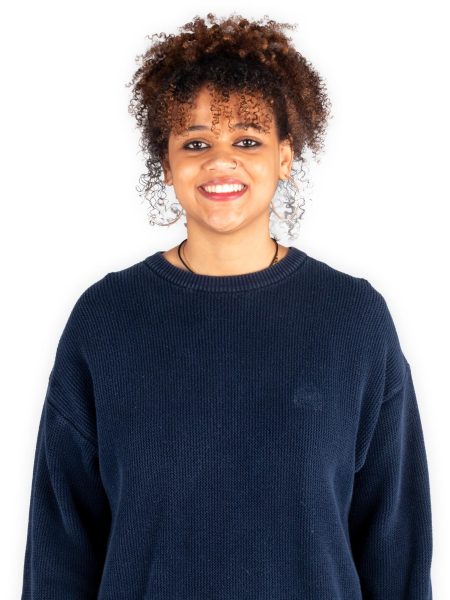Courtney Love had to fight her way into the punk-rock genre.
She had to fight to be taken seriously, to be held to the same standard as men in rock and to earn the recognition she deserved.
She fought for it, and even when she proved good enough, she faced endless objectification and skepticism.
So, with red lipstick, messy blond hair and a babydoll dress, Love, backed by her band Hole, created “Live Through This,” a scornful record that asserted her as one of the best rock artists of her generation.
“Live Through This” is about Love’s pain, needs and sexuality, but most of all, it’s about her rage, which she embodies with primal energy and unabashed honesty.
Get The Daily Illini in your inbox!
The record showcases feminine anger, bitterness and desire in a way that was unprecedented for female rock artists. It’s an album overflowing with grief and fury, spun from Love’s traumas and brandished with a snarl.
The cover features a crown-wearing, mascara-streaked Leilani Bishop, a stark show of femininity against the album’s glaring rage.
“Live Through This” refers to autobiographical traumas but is not a confessional record.
“The whole cliché of women being cathartic pisses me off,” Love said in a 1994 SPIN cover story. “You know, ‘Oh, this is therapy for me. I’d die if I didn’t write this.’ Eddie Vedder says s— like that. F— you.”
Love’s lyrics are more than just releasing emotion, more than just screams that grate against a guitar. She is reflective and thoughtful — no matter how she shrieks the lyrics, there’s meaning hidden underneath her harsh, throaty vocals.
“I’m Miss World/ Somebody kill me,” Love croons against the jagged guitar riff in “Miss World,” balancing intense rage with a catchy melody.
“Miss World” is led by halting guitar chords and ragged vocals, combining anger, vulnerability and helplessness.
“I sometimes feel that no one’s taken the time to write about certain things in rock, that there’s a certain female point of view that’s never been given space,” Love told Sidelines in 1991, the year before Hole released “Pretty on the Inside.”
“He cuts you down from the tree/ He keeps you in a box,” she screeches in “Jennifer’s Body,” her voice dripping with acidity.
Like much of the album, “Jennifer’s Body” narrates the fragmentation of women under misogyny — a snarling depiction of women’s systemic challenges, and the resentment Love holds because of it.
To the misogynist man, a woman isn’t whole; instead, she’s made up of parts, nothing more than a pretty face or big boobs.
“Asking for It” explores the objectification and dehumanization of women, born from an incident when Love performed a show in Scotland.
During the concert, Love stage-dived into the crowd, expecting to be embraced. Instead, she got molested by various members of the audience, devouring her as they shouted obscenities into her ear.
“Was she asking for it? Was she asking nice/ Yeah she was asking for it/ Did she ask you twice?” she seethes, her voice saturated with hostility, conscious of the fact that people thought of her not as an artist but as a sex object.
“Live Through This” was threatened to be swallowed by Love’s reputation, by the pouty sexuality and messiness that had followed her since she was born.
“What Courtney has in her she came with,” said Love’s mom, Linda Carroll, in a 1995 Vanity Fair article. “I began taking her to therapists by the time she was two, and could really find so little help and empathy for both of us in the people I went to. She was in so much pain. And that manifested itself ever since she was a little girl in ways in which I had no clue how to deal with.”
By the time Love was 12, she was in reform school for stealing, and from then on she lived on her own, bouncing through different countries and working as a stripper for most of her adolescent life.
She was considered a train wreck, and her messy persona was only magnified by her convoluted marriage to Kurt Cobain and the rumors surrounding their relationship.
“Doll Parts” narrates the repulsion and attraction of Love and Cobain’s marriage, examining the emotions that began to engulf Love as their relationship became more serious.
“I want to be the girl with the most cake/ I love him so much, it just turns to hate,” she rasps with a fraying voice, perhaps the most vulnerable we see Love throughout the album.
It’s less of a love song and more of a narration of Love’s inner turmoil as she fell in love with Cobain.
Cobain’s suicide came four days before the release of “Live Through This,” his death threatening to swallow the music and say nothing about the political and social movement in encased.
Love’s rawness and unapologetic emotion of “Live Through This” in the wake of Cobain’s death added another poignant layer to the album, amplifying its themes of pain and anger. It’s a blistering record that rips Love inside out, leaving her gasping for breath.
“Someday you will ache like I ache,” she sings wearily on “Doll Parts.” “Someday you will ache like I ache.”
It’s brutal and ugly, proving to be a sprawling testament to feminine rage — a ragged rock album that obliterated the standard for female artists and continues to 30 years later.













